#Fantasy Character Development
Text
The Allure of the Fish-out-of-Water Trope in Fantasy
In the sprawling annals of fantasy literature, the ‘fish-out-of-water’ trope is as permanent a fixture as a brooding hero in a murky tavern.
Imagine plucking an unassuming character and tossing them into a realm where their understanding of the world is about as useful as a chocolate war hammer.
Picture a character for whom the idea of quantum physics is less alien than their current…

View On WordPress
#character adaptation#character misadventures#character-driven narratives#epic fantasy journeys#fantasy book reviews#Fantasy Character Development#fantasy genre analysis#fantasy literature#fantasy misfits#fantasy novel tropes#fantasy reader engagement#fantasy world exploration#fish-out-of-water trope#high fantasy insights#humorous fantasy#imaginative storytelling#literary humor#unfamiliar worlds#whimsical storytelling
0 notes
Text
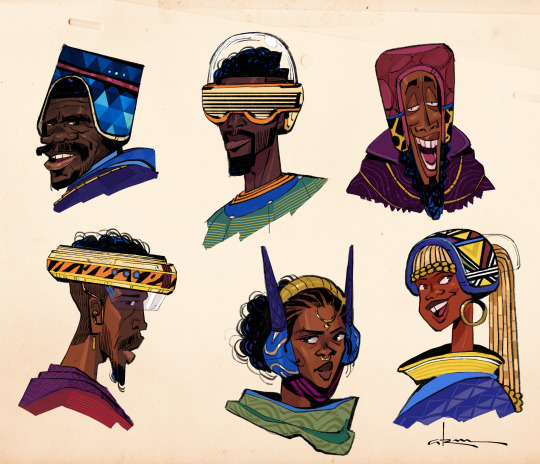
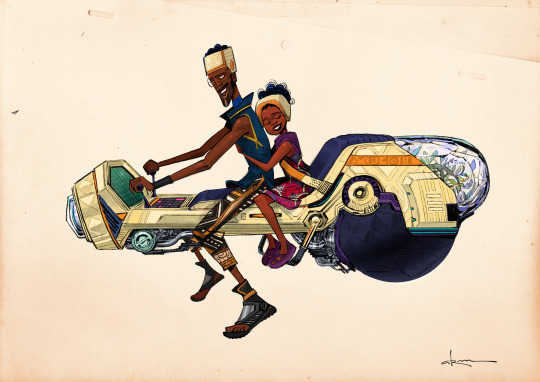
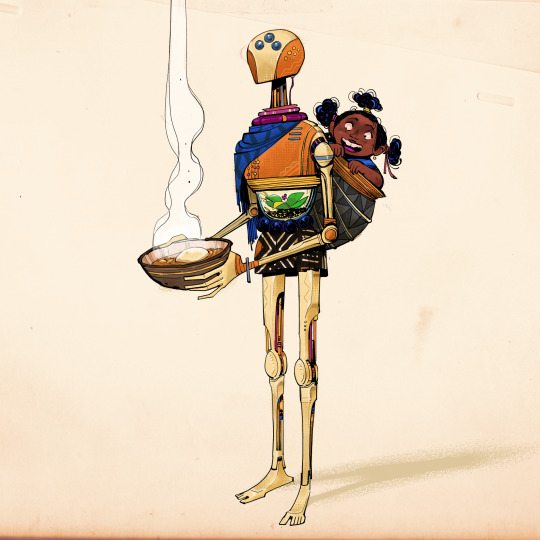


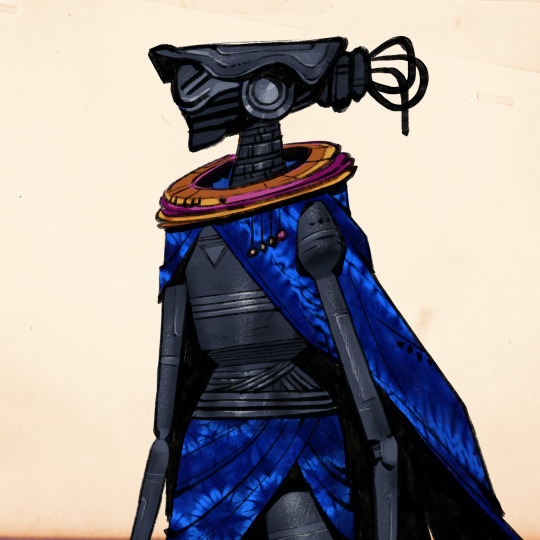
SUDÄAN, The Nubian Empire
2K notes
·
View notes
Text
I am feeling a way about Aelwyn continually inviting Adane to hang out at her apartment even though it's a disaster area with her ten ornery cats and scattered microwave dinner trays. I know a part of that is Brennan just wanting a reason to show the audience the very funny contrast from, "I came here to fuck!" to "Nooo Hector :(" But there's also something to her being like, "I want you here with me even though it will entirely ruin any possible remaining mystique around my cool girl persona"--something she absolutely still cares about in a general sense as she tells Adaine not to tell Fabian anyone else about what her apartment is like. It's one thing to be nice, but it's another to be vulnerable, especially when you've been raised in such a way that every weakness was used as a future attack--so much so that her entire brand of magic is protecting herself and not being vulnerable.
#dimension 20#fantasy high#adaine abernant#aelwyn abernant#d20#spoilers#not gonna apologize for all the abernant posting#bc I've been waiting for this for YEARS#this is my oscars#anyway I love it when a bit is anchored in like character development#fy aelwyn would have NEVER let adaine see her being this uncool#now she's like pleassssse visit me I miss you
2K notes
·
View notes
Text
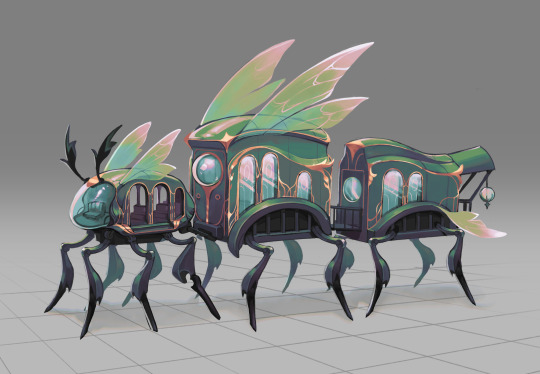
bug bus bug bus bug bus!!!
#concept art#world development#vehicle design#fantasy art#art nouveau#zero art#piece for a visdev class! rare chance to do something other than characters
485 notes
·
View notes
Text
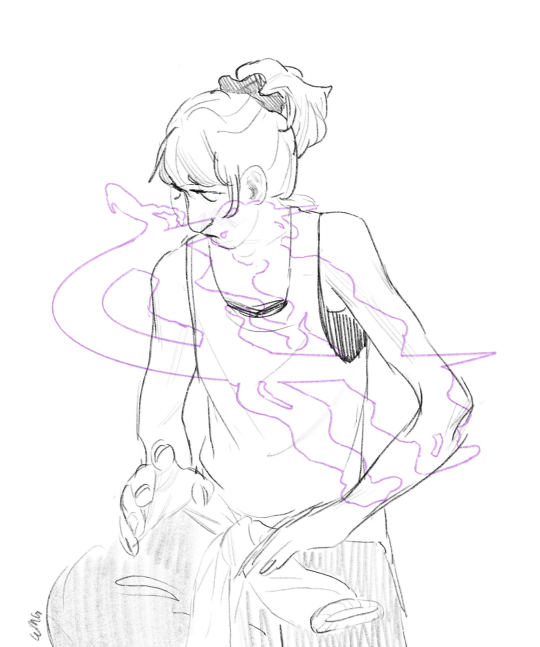
though you do not know how or why it works like this, your realm is doubt. it works.
how about that miracle scene, huh.
#fantasy high#fantasy high junior year#kristen applebees#i started this lichrally the moment the episode finished i am so obsessed with this scene. with kristen.#fantasy high plotlines with characters loosing their abilities absolutely undefeated character development arc tactic#dimension 20#my art
475 notes
·
View notes
Text
I think one of the (several) reason for why Shadowbringers is so good is because the narrative is more about the individual characters than it is the Greater Conflict.
Like, the Greater Conflict is definitely there, obviously, it's what keeps the story going, but the focus is always on the people, much more so than the other expacs. HW and STB also have some level of character focus ofc, but it's very selective and even then the focus is based on them in the specific context of the current conflict.
But in SHB, the story bends around the characters' narratives, rather than the other way around. The story forms to put them in situations that challenges their flaws and limitations, by forcing them to confront it and actually deal with it. Even just at the very beginning, you see the twins being dealt a terrible hand that very neatly clashes against their faults.
Alisaie is confronted with a situation that she can and could never do anything about. She has no means to help the patients (at the time at least). The only way for her to help them is by eradicating the source of the affliction itself: the Light. But the Light isn't just some Big Bad she can kill and be done with. Even when all the lightwardens are down the Light is still there, it's just more manageable. Alisaie learns to not only see the bigger picture, but to care for it for her own reasons. For all that she has participated in Big Operations, it has always been because that's what others were doing, what others cared for to be done. She feels for the people of Doma and Ala Mhigo, but she didn't set out to liberate their homelands because she has any personal investment in it. But other people do, and she cares about what other people- be they strangers or friends- care about.
Caring about other peoples feelings and opinions isn't a flaw by itself of course, but doing things without any sense of personal purpose, is. This is what SHB helps her fix and confront, because it is personal now, she does it because she cares.
Alphinaud is forced into a situation where diplomacy and negotiations does and would never work. He can't talk himself into Eulemore, and he sure as hell can't convince Vauthry or the free citizens to let go of their life of ignorant luxury. The problem here also isn't as straightforward as a corrupt ruler, because even after Vauthry is revealed for the bastard he is, it takes considerable effort and convincing to get them to get off their asses and get to work. It's one thing to change the minds of people who wanted the same outcome just in a different way (like Ishgard- they rejected unity with the dragons, but they still wanted an end to the war), but it's another thing entirely to convince people that another way of life is even worth it.
And this is what SHB teaches Alphinaud, that words and deeds can achieve much, but that there is much more to diplomacy than appealing to their wants and/or sensibilities to convince them of an alternative outcome. His development may not be as immediately noticable as some of the others (largely bc he had a lot of it already from HW), but it is still very much there.
Urianger's development had already been build up and sort-of started already, but we don't really get to see it until it near explodes in his face after we kill Vauthry. Even after he swore off secrecy, he's forced to confront his morals when the Exarch bids his assistance. Urianger has always been looking at the greater picture, to the point he'd almost lose himself in it if it wasn't for the overwhelming guilt he feels. He works with the Exarch, because he knows he's the only one capable of it, and he hates the very fact that he is. When the climax of the plan is about to be executed, he is pained to the point that even he can't mask it anymore. He has betrayed their trust once more and once more it will result in the death of a friend.
But it doesn't, and that's what's needed for him to confront himself. As terrible and unexpected as the circumstances around it was, it did show him that there are other ways. There is no one way to solve a problem, the first choice doesn't need to be the only one. And he would find those other ones of he had just talked to the others.
The pay-off doesn't quite come until EW, where we see him actively make the choice to go against his first instinct of acquiesing to the Loporrits' plans, and instead chooses to consult us, but that scene wouldn't have made sense or even happened had it not been for his development in SHB.
Now, Y'shtola is a bit of an odd one because while she does get her due focus, she doesn't quite get the same amount of development as the others. Rather, it shows how she thrives when not held back by others interests and (often somewhat needless) bounderies. Her intelligence and charisma have the chance to shine, her independence and confidence now rewarded rather than punished. In ARR, she is constantly annoyed by the Maelstroms way of dealing with things, and how no one bothers to actually listen to her. Her advice and reprimands are almost entirely ignored until the problem blows up in their faces and they have no choice but to concede that she was right.
Being independent and confident aren't flaws by themselves, but her sometimes aggressive approaches to telling others off does her few favors. In SHB, she has the Night's Blessed who actually heed her word and respect her, they listen to her and actually take what she says- be it advise or reprimand- to heart.
She does also, however, have to deal with Thancred who, much like the Maelstrom, ignores her reprimands and doesn't listen to her. The difference here is that her bluntness actually serves a purpose. In ARR, her bluntness lacks tact and meaning, simply a result of frustration. The Maelstrom won't listen to someone who doesn't come up with fleshed-out arguments and solutions, but Y'shtola doesn't bother giving them any until she knows they'll listen. But with Thancred, she does give him the solution. It's just that the solution is him. His words, to be precise, and his acceptance. And he needs to be reminded of that, and she does. It doesn't automatically solve anything, but that's simply how it is with complicated situations like that.
Speaking of Thancred, his narrative is probably the most important of all for SHB. He's always been shown as a capable, but ultimately self-destructive man who genuinely does not know how to deal with himself in a healthy manner. Theoretically speaking he knows, he recognizes that he is self-destructive, but he still has no idea how to actually fix it. It's been shown as early as ARR when it results in him getting possessed, but it's not really made a point of until it almost ruins his relationship with Ryne. Up until now he could just ignore his problems, but with Ryne he can't because now The Problem(s) aren't just his anymore. Anything that would hurt him now would also hurt her, meaning that if he wants to continue doing the one thing he actually cares about (protecting his loved ones) then he needs to get his shit together.
But Thancred doesn't know how to. And for all that his friends try and try to help him, he doesn't know how to. He's paralyzed. Thancred is so deep into his self-destructive habits that it takes the threat of both his and the person(s) he loves the most in the worlds deaths to get him into action. He doesn't know if it's Minfilia or Ryne who will return, and I'm not sure he expected to survive Ran'jit. He only has this chance, and if he wants to die without (as many) regrets he has to do something now.
And he does. He does and what it is he does is tell Ryne that whatever happens, it has to be her own choice. That he will accept any outcome, that he will still care about her no matter what, that as long as she lives or dies as she wants to, that he still loves her. He still loves her. And it works, because that's what he's needed to do all this time, to be able to just tell her that she matters. That he cares.
He tells her to live her own life, and he learns to live his own too.
#had to put a cut bc this got WAY long lol#replaying shb as you do. goes insane. as always. it has me in a chokehold#the story primarily focuses on thancred & ryne but EVERYONE gets character development. yes even y'shtola. its just not as apparent w her#OOUUGH *explodes*#i have many more thoughts still but if i start rambling in the tags ill never stop so i will spare you. this time#alisaie leveilleur#alphinaud leveilleur#urianger augurelt#y'shtola rhul#thancred waters#ryne waters#shadowbringers#final fantasy#final fantasy 14#final fantasy xiv#ff14#ffxiv#xander rambles#xander being insane about ryne#SHES INCLUDED SO IT COUNTS
404 notes
·
View notes
Text
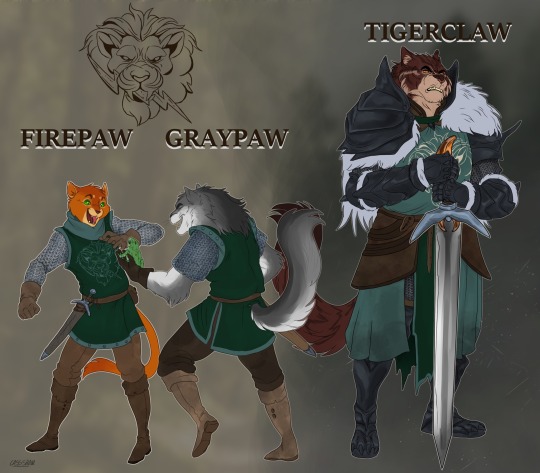
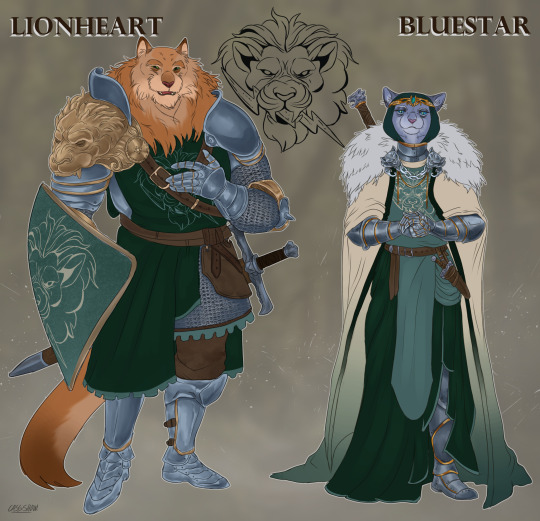
⚔️Warriors, playful kits and unsteady souls.
Been feeling nostalgic n redesigned warrior cats as knights n squires. Bluestar is my fav design so far, next I’m doing Yellowfang and Spotted leaf
#character design#art#creature design#creature art#fantasy#anthro#digital artist#visualart#visdev#warriors#warrior cats#warriors fanart#warriors cats#knight#armor#costume design#character development#conceptart#Lionheart#bluestar#Thunderclan#redesign#furry#furryart#arms and armor#illustration#illo#dark art#dark fantasy#fantasy art
2K notes
·
View notes
Text

THE SAD BOY ABOVE ALL SAD BOYS (he can fly and he is the best)
#artists on tumblr#illustration#illustrators on tumblr#art#fantasy#fantasy illustration#character art#stormlight archive#stormlight fanart#stormlight#kaladin stormblessed#kaladin fanart#words of radiance#cosmere#kaladin#stormblessed#the best sad boy ever prove me wrong best character developement ever
272 notes
·
View notes
Text
Crafting Future From Ruins: A Writer's Guide to Designing Post-Apocalyptic Technology
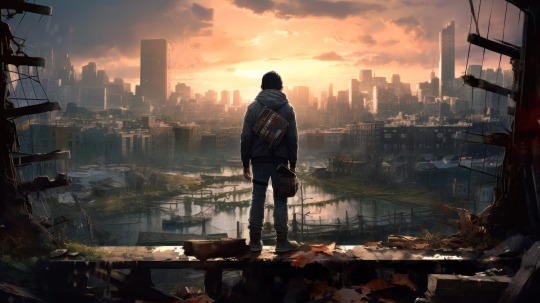
Photo: Standard License- Adobe Stock
Crafting post-apocalyptic tech involves blending creativity and realism. This is a guide to help you invent tech for your post-apocalyptic world:
Tinker, Tailor, Writer, Spy: Start with modern tech. Take it apart (conceptually or literally if you're feeling adventurous). Using the basics, think of how your character might put it back together with limited tools and resources.
Master the Fundamentals: Understand the basic principles underlying the tech you're working with. Physics, chemistry, and biology can be your best friends. This understanding can guide your character's resourceful innovations.
Embrace the Scrapyard: The world around you has potential tech components. Appliances, vehicles, infrastructure - how could these be deconstructed and repurposed? Your characters will need to use what's at hand.
Cherishing Old Wisdom: Pre-apocalypse books and manuals are the new internet. A character with access to this knowledge could become a vital asset in tech-building.
Indigo Everly
#writing#writing tips#creative writing#writing inspiration#fiction writing#fantasy writing#world building#character development#magic systems#fantasy tropes#post apocalyptic#dystopian writing#survival stories#wasteland adventures#creativewriting#storytelling#writing advice#writingcommunity#narrative structure#writingtips
808 notes
·
View notes
Text
The Hero with Dead Parents is not Cliché, it’s Necessary
The staggering number of protagonists in sci-fi and fantasy with dead parents grows every single year. Frodo Baggins, Harry Potter, Luke Skywalker (before the retcon in ESB), almost every Disney Prince and Princess, the Baudelaire children. Beyond the realm of fantasy into action, thriller, romance, mystery, slice-of-life, and bildungsromans.
Dead parents, or parent, is the curse of being the hero of the story and for a very good reason:
Parents are inconvenient as f*ck.
Unless the mom and/or dad is the villain of the story or the entire story is about the relationship with the parent/parents, the “dead parent” trope serves many purposes and while it may be “cliché” that doesn’t mean this trope is bad or, in my opinion, overused.
It’s one less liability the hero has to worry about protecting
It’s one less obstacle in the hero’s path to their adventure
It’s one (or two) less characters to find excuses to stay relevant in the story
It’s a juicy backstory a lot of people can relate to
Trauma. Is. Compelling.
It’s an excellent motivation
And their murder is an excellent inciting incident
Living parents and guardians get killed off both for internal plot reasons, and meta writing reasons: Living parents are a pain in the ass to keep up with. You’re stuck with a character your hero should still keep caring about, keep thinking about, keep acting in relation to how their actions will be seen and judged by that parent. That parent becomes an obvious liability by any villain who notices or cares.
Living parents can of course be done well, unless they’re the villain, but they just kind of sit there on the fringes of the plot, waiting around to be relevant again and they kind of come in four flavors:
There when the plot demands for pie and forehead kisses (Sally from Percy Jackson)
A suffocating but well-meaning obstacle in between the character and their independence trying to do right (Abby from The 100, Katniss’ mom from Hunger Games, Spirit from Soul Eater)
A mentor figure (Valka from HTTYD 2, Hakoda from ATLA)
The only rock this character has left (Ping from Kung Fu Panda)
*Notice how many of my examples lost their partners shortly before or during the plot, thus still giving the hero the “dead parent” label.
Most of these are self-explanatory so I’ll say this: I think this trope gets exhausting when the parents are written out without enough emotional impact on the hero. These are their parents and a lot of the time, the emotional toll of losing them isn’t there, like just slapping a “dead parents” sticker is all you need to justify a character’s tragic backstory and any behavioral issues they might have.
Like, yes, the hero has dead parents, but you still have to tell me what that means to them beyond obligate angst and sadness. When the “dead parents” trope reads as very by-the-numbers, usually the rest of the story is, too.
How present the parents were in the character’s life should be proportional to the death’s impact on the narrative (as with any character you kill off). If they were virtually nonexistent? No need to waste a ton of time. If they didn’t matter to the character before, they don’t need to matter now unless the plot revolves around some knowledge or secret their parent never shared.
Sometimes, the hero’s dead parents are a non issue. Frodo being raised by Bilbo doesn’t impact his character at all. It’s a detail given and tossed away. On the other hand, sometimes the entire centerpiece of the work is revenge/justice/catharsis surrounding the parent’s death—Edward and Alphonse Elric’s entire story is defined by the consequences of trying to bring their mother back from the dead.
As someone who kept one of my protagonist’s parents alive and didn’t make them villains just to spite the trope, I have all the more respect for this enduring legacy of fiction.
You can of course keep the parents alive, but I don't think it's seen as lazy or cheating or taking a shortcut just killing them off, so long as you remember that your hero is human and should react to losing them like a real person.
#writing advice#writing resources#writing tips#writing tools#writing a book#writing#writeblr#character design#character development#fantasy#scifi#dead parents
156 notes
·
View notes
Text
Heroic Journeys in Modern Fantasy: The Rise of Flawed Protagonists
Once upon a time, in the kingdom of modern fantasy literature, a new kind of hero began to emerge.
Gone are the days when heroes were as spotless as a knight’s freshly polished armour.
Today’s fantasy protagonists are more akin to a warrior who’s been through a few too many battles and perhaps one too many visits to the mead hall.
They’re flawed, complex, and as perfectly imperfect as a spell…
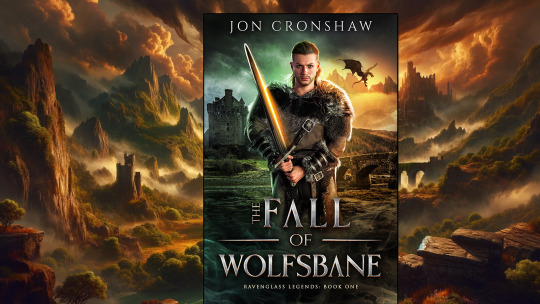
View On WordPress
#character complexity#character-driven fantasy#complex heroes#Contemporary Fantasy Heroes#dark fantasy heroes#dynamic characters in fantasy#fantasy book protagonists#Fantasy Character Development#Fantasy Genre Trends#fantasy literature#fantasy narrative evolution#Flawed Protagonists#heroic character flaws#heroic journeys#modern fantasy#modern fantasy storytelling#moral ambiguity#morally grey protagonists#relatable fantasy characters
0 notes
Text
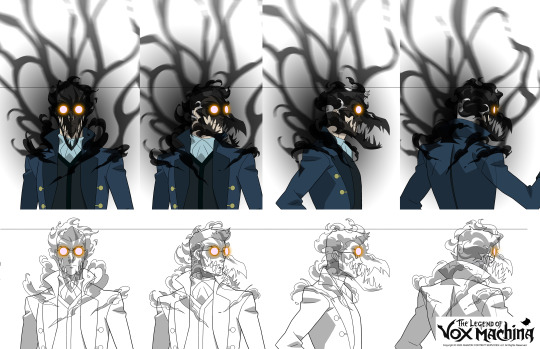
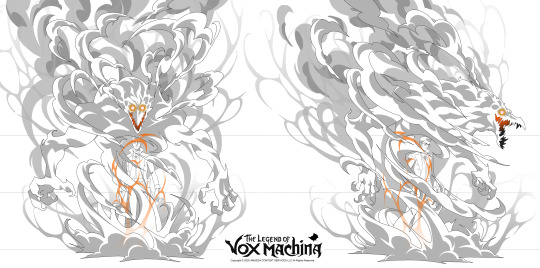


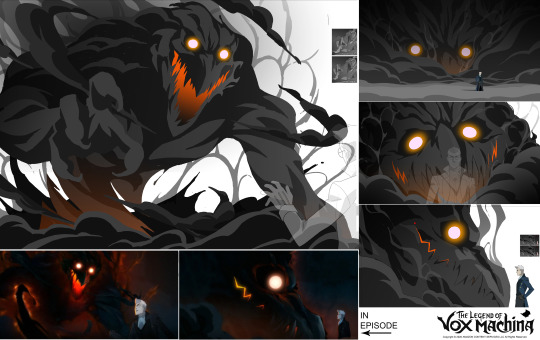
THE LEGEND OF VOX MACHINA
Character design
TV series
Young adults
My lead Phil Bourassa gave me the opportunity to create the big villain monster of the season 1 finale. They approved it. And then I had to do the turnaround! :-O Without a doubt the most challenging turnaround of my career! I had a lot of fun though ^^
The Legend of Vox Machina season 1 and 2 are available on Amazon Prime Video. This is the animated adaptation of the popular Youtube roleplaying show Critical Role (2M+ subscribers), produced by Titmouse Inc.
#critical role#the legend of vox machina#btod#bertrandtodesco#role play#dnd#titmouse#amazonprime#heroic fantasy#character design#visual development#vis dev#monster#smoke#orthax#percy de rolo
302 notes
·
View notes
Text
hythlodaeus be like "teehee I hope I can be of some use" *clean headshot* 😊
bitch they wanted you for the aether-centric governmental position I know you think your curmudgeony cunt husband is amazing but stop selling yourself short its a slippery slope to sacrificing yourself to make god smh
#final fantasy xiv#ffxiv#im glad ee3 confirmed hes downplaying his own abilities bc soooooo many people just take characters at their word in this game#im always curious as to how his esteem issues developed I dont think its as simple as 'society' bc hes pretty accomplished in the context o#said society they wanted him on the convocation! hes in charge of a whole bureau and that doesnt mean no one ever made him feel bad and we#know erichthonious got mocked though his situation is more actively extreme but the main example of something hyth cant do is transformatio#which is considered preposterous to do in front of others most of the time so it seems like it wouldn't matter too much. maybe its moreso#that he sees others as better and more deserving and is constantly comparing himself and seeing others be better at him in certain areas#started to develop those esteem issues#siren says#funny post which is a trap for my character musings anyways#hythlodaeus
201 notes
·
View notes
Text
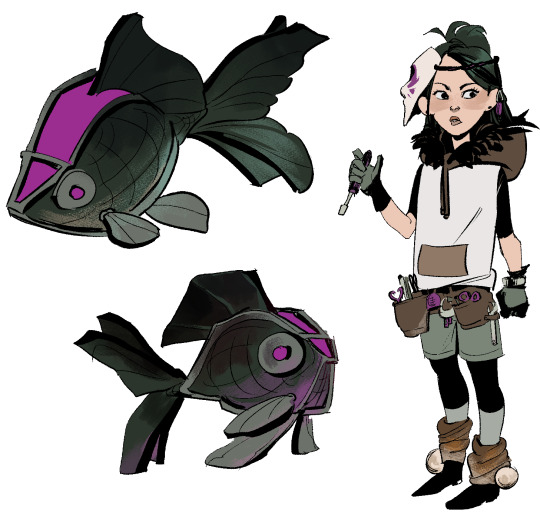
These sea automations have faded into obsolescence, and the knowledge of how to repair them would have disappeared entirely if not for the efforts of one child.
#character design#science fantasy#science fiction#sci fi art#comic artist#digital art#artists on tumblr#visual development#my art
1K notes
·
View notes
Text
Lady (she/they)
i had posted a profile for the main character some time ago, but as the writing of the game progressed, i think i need to update that description to reflect how she actually behaves during the game.

Lady goes by many names, mostly because she rarely bothers to give one. No one knows who or what she is, not even herself, only that she is destined to bring the great calamity and bring an end to the forsaken realm of Narkaas.
Lady is not an evil character, but she is a fatalist and a misanthrope, resenting people for the way she has been treated from the moment she came to be and believing that it is pointless to fight against her fate. She is also a very emotional and impulsive person, often acting reckless or self-righteous, with a complete disregard for her own well-being, but a strong conviction to do what she feels is right in the moment.
Lady is curious by nature, often finding herself intrigued by the people she meet and briefly forgetting about her goals as she pursue her current interest.She is very ignorant and naive, knowing very little about the world and the people in it and often being completely clueless about things that would be obvious to most.
Lady tends to be awkward around people, only speaking when needed and using short, to-the-point sentences. While she is prone to violence, she highly dislikes verbally confronting people and unless provoked, she will either quietly listen to them or ask questions to satiate her curiosity.
-
Anyway, thanks for listening to our girl story. I have to go now, please watch over her and make sure she doesn' t join any cults while i' m gone.
#game development#solodev#indiegamedev#irredeamable#indiedev#fantasy#fantasy world#main character#female protagonist#anti hero#original character#character writing#writing#pixel art
218 notes
·
View notes
Text
Very funny to me how Stansas present her character as being so interesting and complex because of her vulnerabilities, while simultaneously ignoring those same vulnerabilities in other characters. Dany is sold as a bridal slave and lacks agency throughout AGOT and after. Her dragons are either too young/small to utilize effectively or locked away for the majority of the story. They aren't some all-powerful trump card that protects her from harm. Arya is captured as a prisoner of war, forced to watch countless people tortured and murdered, and then essentially enslaved in Harrenhal with no way to fight back. She has an entire arc of feeling powerless, of being a "mouse", during ACOK. She doesn't have "kung-fu" or the ability to magically fight her way out of every situation, she's a young child lacking physical strength with only the most basic sword training.
Sansa isn't the only female character, she isn't the only young character, she isn't the only character who suffered, and no one is obligated to prioritize her. I'm so tired of Dany and Arya being mischaracterized and having their stories erased to prop Sansa up. "Sansa has kept her dignity" In other words, let's praise her for having a level of security that Dany and Arya don't have access to. She hasn't ever been forced to make a hard decision which of course means that she's morally superior to them. They can't even admit to themselves that her lack of action is due to her own passivity. If it doesn't fit their delusion, they erase it from the story and expect the rest of us to play along. Ask one of them what they like about her character without bringing up her being the ultimate victim, and I genuinely don't believe they'd be able to give you an answer. They belittle other characters more than they talk about her and these takes just scream insecurity/jealousy at the content and development other characters have in their POVs.

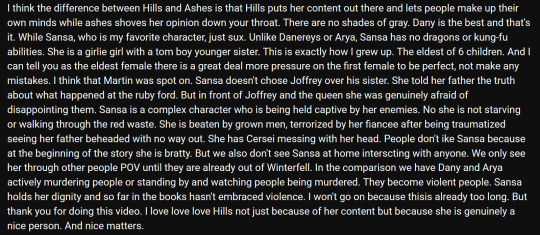
#arya stark#daenerys targaryen#anti arya bs#anti daenerys bs#asoiaf#anti sansa stans#these being comments on a video of a stansas /correcting/ a Dany stan...the jokes write themselves#/she's a break from the fantasy/ /people would be equally powerless in her situation/ like they aren't even pretending#that they don't use her as a boring every-man self-insert#okay she's subjectively /normal/...what is interesting or important about that in a fantasy novel? 😭#Arya and Dany are so interesting because they have that complexity...vulnerability but also the strength to navigate their situations#and it isn't because they're /special/ it's because that's who they are as characters#Reducing Dany to her dragons or Arya to her combat abilities (which barely exist) is such a disservice to their arcs#but of course acknowledging that they're well-developed and empathetic doesn't square with their fantasy that#Sansa is the most pure important character who deserves everything because she suffered 🙄#they really write entire fanfictions and then go /why don't people think like us?? 😔/#/Sansa kept her dignity/ yeah that's why she's currently part of a plot to poison a disabled child#because she was told she'd benefit from it oh yeah she's sooooooo morally superior to Dany and Arya 😑
150 notes
·
View notes